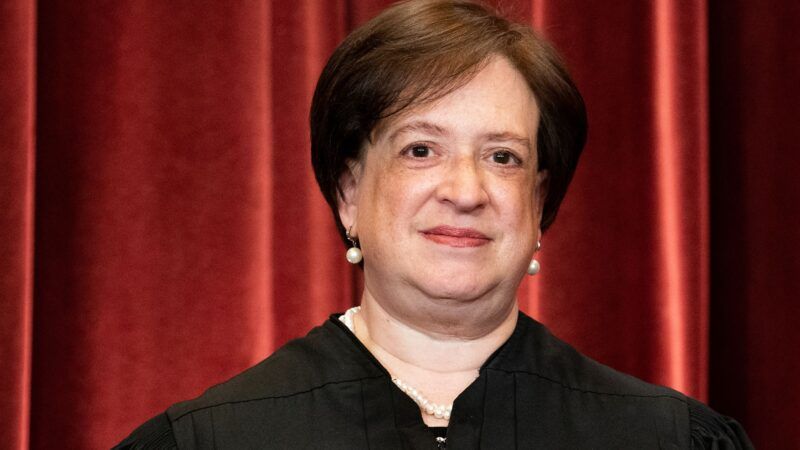SCOTUS Refuses 'To Print a New Permission Slip for Entering the Home Without a Warrant'
Fourth Amendment advocates win big in Lange v. California.

In California v. Lange (2019), the California Court of Appeal held that a police offer may always enter a suspect's home without a warrant if the officer is in "hot pursuit" of the suspect and has probable cause to believe that the suspect has committed a misdemeanor. Today, in an important win for Fourth Amendment advocates, the U.S. Supreme Court overturned that ruling. "We are not eager—more the reverse—to print a new permission slip for entering the home without a warrant," declared Justice Elena Kagan in Lange v. California.
The case originated when Arthur Gregory Lange drew the attention of a California highway patrol officer for honking his horn and playing his car stereo at a loud volume, both of which are traffic infractions at worst. The officer followed Lange's car and ultimately switched on his overhead lights just a few seconds before Lange pulled into his own driveway. Lange, who says he never saw the officer's lights in his rearview mirror, entered his driveway and pulled into his garage. The officer quickly parked, exited his vehicle, stuck his foot under the garage door to prevent it from closing, and performed a search without a warrant.
The state of California has "argued that the pursuit of a suspected misdemeanant always qualifies as an exigent circumstance authorizing a warrantless home entry," Kagan observed in her majority opinion, which was joined in full by Justices Stephen Breyer, Sonia Sotomayor, Neil Gorsuch, Brett Kavanaugh, and Amy Coney Barrett. But that sweeping argument, Kagan declared, ran afoul of both SCOTUS precedent and the Fourth Amendment's common law roots.
"When the totality of circumstances shows an emergency—such as imminent harm to others," Kagan observed, "the police may act without waiting." But "when the nature of the crime, the nature of the flight, and surrounding facts present no such exigency," she held, "officers must respect the sanctity of the home—which means they must get a warrant."
The Fourth Amendment's common law origins point to the same result, Kagan continued. "'To enter a man's house' without a proper warrant, Lord Chief Justice Pratt proclaimed in 1763, is to attack 'the liberty of the subject' and 'destroy the liberty of the kingdom,'" she wrote, quoting from a venerable British common law judgment. "That was the idea behind the Fourth Amendment."
"On many occasions, the officer will have good reason to enter—to prevent imminent harms of violence, destruction of evidence, or escape from the home," Kagan concluded. "But when the officer has time to get a warrant, he must do so—even though the misdemeanant fled."
Writing in concurrence, Chief Justice John Roberts, joined by Justice Samuel Alito, offered a different take on the Fourth Amendment. In fact, Roberts' concurrence reads more like a dissent, as it denounces the majority's reasoning as "absurd and dangerous," "hopelessly indeterminate," and likely to impede necessary police work. According to Roberts, hot pursuit "is itself an exigent circumstance" that allows the police to bypass the Fourth Amendment's usual warrant requirement.
Fortunately for Fourth Amendment advocates, Roberts' narrow reading only managed to attract one other vote today.


Show Comments (38)